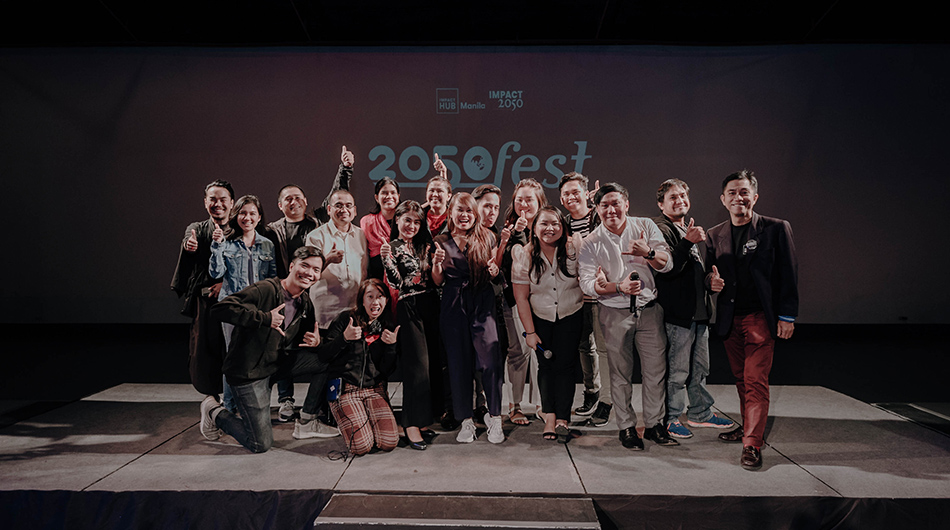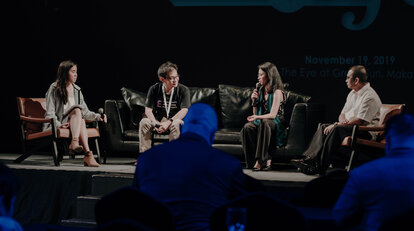Innovating for Lasting Impact, One City at a Time

Innovators from 13 cities across the Philippines formed teams and came together at the Impact Hackathon - a 24-hour hackathon that aimed to become Philippines’ largest multi-city event. Participants hailed from major cities such as Metro Manila, Baguio, Cebu, Bacolod, Dumaguete, Davao and Iligan.
Supported by the Friedrich Naumann Foundation (FNF), the Impact Hackathon was organised by Impact Hub Manila, a global community focusing on building entrepreneurial communities for positive change. The hackathon was one of the highlights of the Impact 2050, a long-term program that aims to activate cities in the Philippines “to bring awareness to innovators and to catalyse a truly entrepreneurial economy.”

FNF has worked with Impact Hub for this Impact2050 series with the aim to utilize the untapped potential of Filipinos across the country and to create new solutions to existing social problems. The vertical problem areas identified included climate change, smart cities, internet of things, and agriculture.
The culminating event featured talks from multi-industry experts working on innovation and technology. FNF Alumni Anthony Abad and Kristine Alcantara, both Trade Law experts, shed light on the importance of legal infrastructure in pushing policies to support new businesses during the Fourth Industrial Revolution.
Abad said: “What we are doing is trying to look at the laws on a startup perspective – the ease of being a startup, the ease of registering the business, the ease of securing the finance, the capital, the technology – all of that has some legal implication which unfortunately you have to deal with.”

Government participation is crucial in these discussions as startups can only thrive in an environment when policies work to their advantage. The most common problems are still in terms of ease of doing business. Potential investors, foreign and local, have to deal with a lack of streamlined and efficient processes, wherein a handful of requirements and paperworks have to be filed in different government offices.
Mirra Reyes of Biyaheroes, a platform focused on providing our fellow commuters with a convenient way to book their public transport online, shares this sentiment. “While we placed better this year on the World Bank 2020 Ease of Doing Business (95th from 124th of 190 countries), the Philippines still does not have the most ideal setting to set up a business. There are a lot of ideas and opportunities here; imagine if these ventures are immediately welcomed by the government. They can create jobs, solve problems, and yield creativity as well as innovation”.
To date, there are two laws that foster innovation on the national level – the Philippine Innovation Act (RA 11293), and the Innovative Startups Act (RA 11337). FNF has supported the latter through a series of consultations in Manila and Iloilo.

Transfarm seeks to address agricultural issues
The winning IT-based solution, Transfarm, is an end-to-end e-commerce and marketing solution created to bridge the gap between the local producers and the large scale business consumers. It enables farmers to appropriately market their harvest and avoid wastage from oversupply.
In addressing the existing problems in the agricultural industry, the people behind Transfarm “attempt to meet the expectations of food manufacturing companies in sourcing sustainable and affordable produce, while providing equitable earning for farmers, through contracts and their cooperatives.”
Together with the other hackathon finalists, Transfarm will undergo coaching sessions with Impact Hub which will help in the transition from starting up, to incubation, and potentially acceleration stage.
Transfarm was awarded at the 2050fest, the final pitching event that concluded the Impact Hackathon. It was held at The Eye, Green Sun Hotel in Makati City on November 19, 2019.
FNF Philippines’ Head of Country, Wolfgang Heinze expressed his support to Impact Hub’s growing impact: “We believe that individual freedom is an integral part of growing as a nation. When you give people their freedom to make a lot of change, then great things can happen. The beauty of innovation is knowing that this can be exercised. It allows discovery of untapped talents that can possibly give solutions to today’s problems.”